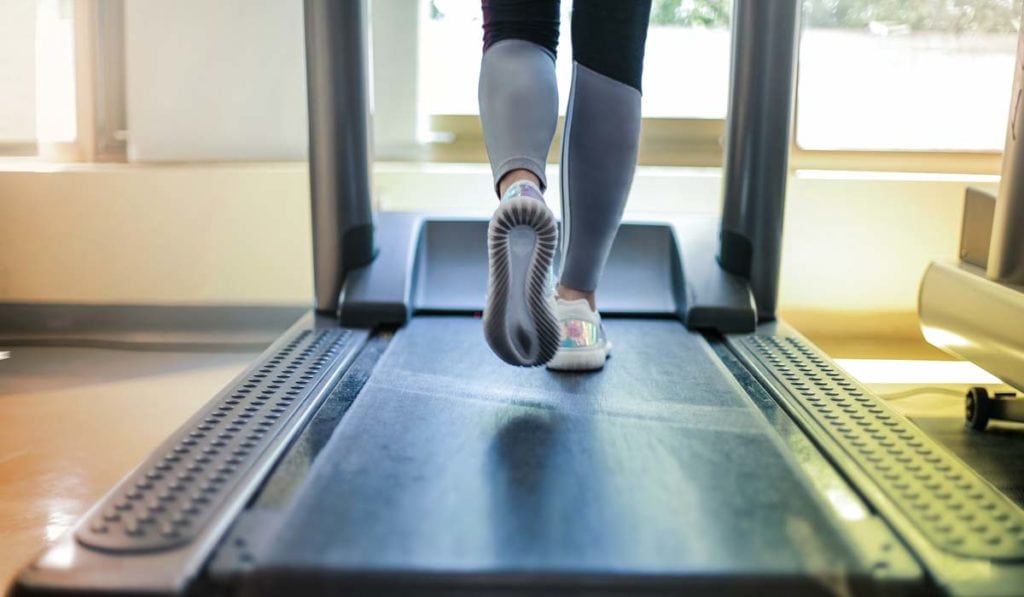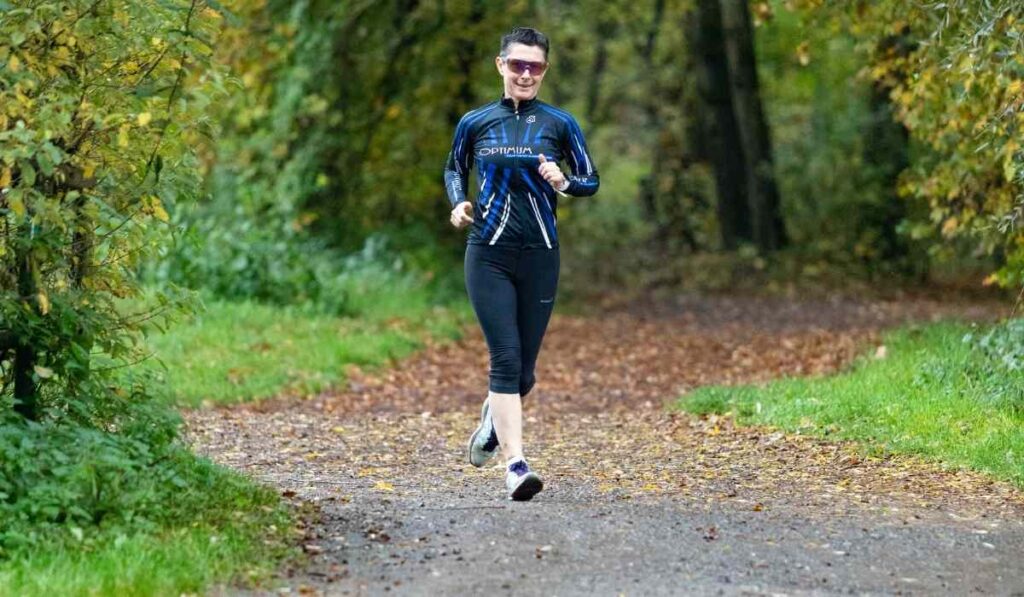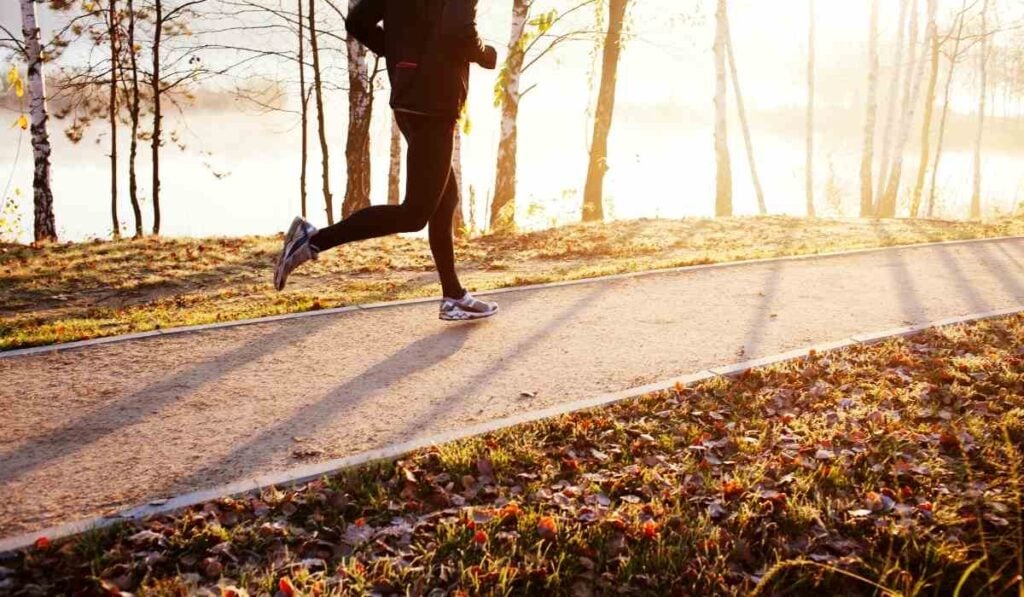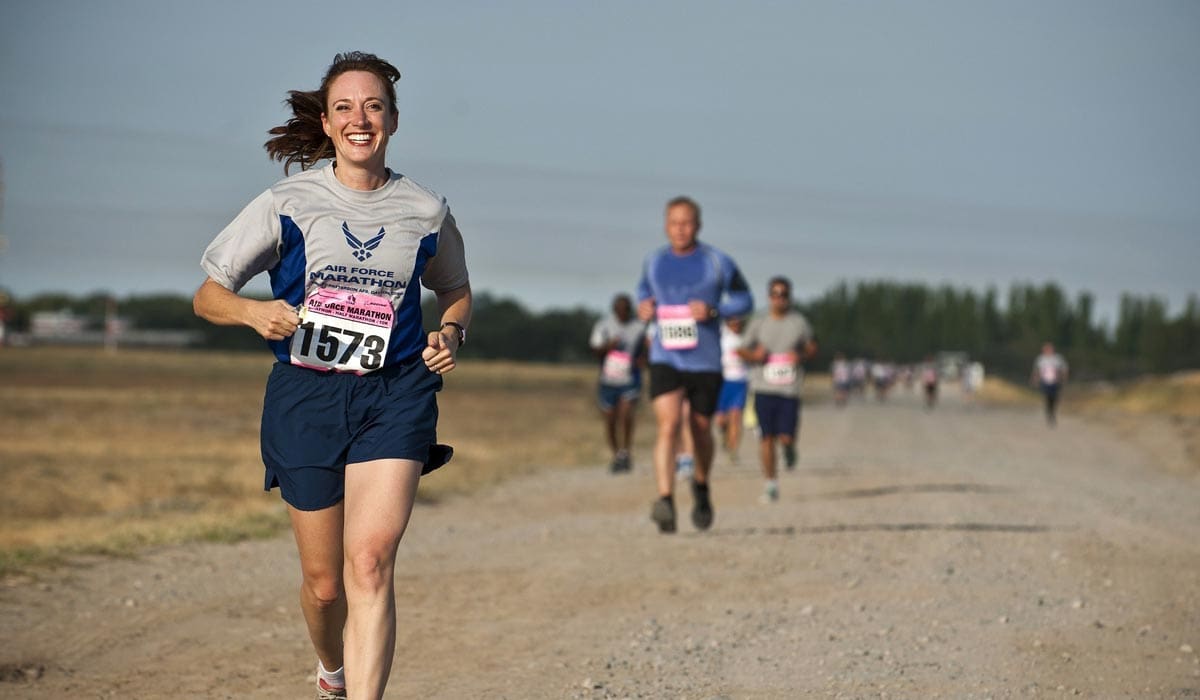
Top 12 Health Benefits of Running
- 1. Increased longevity
- 2. Improved cardiovascular health
- 3. Weight loss
- 4. Boosted immune system
- 5. Improved sleep quality
- 6. Relieves stress and improves mental health
- 7. Increased bone density
- 8. Reduced risk of cancer
- 9. Builds muscular strength
- 10. Boosts cognitive function
- 11. Lowers the risk of diabetes
- 12. Increased energy
- 8 Reasons to Start Running
- 1. Promotes a healthy lifestyle.
- 2. Gain confidence.
- 3. Exercise anywhere.
- 4. Make new friends.
- 5. Support a cause.
- 6. Spend time with family.
- 7. Develop discipline.
- 8. Running can be fun!
- Key takeaways:
Perhaps you’re intrigued by the idea of running but haven’t quite found the motivation to get started just yet. Running regularly has plenty of benefits! Whether it’s reducing your risk of disease or strengthening your heart, running offers something for everyone. Here are the 12 top benefits of running!
1. Increased longevity

One of the most cited benefits of running is its impact on overall life longevity. According to studies, running reduced premature mortality by 25-40%.1 Researcher believe this may be because running can reduce chronic disease, thus increasing longevity. Even just one hour of running a week may have substantial effects on less active people.2
Many researchers are trying to find the exact amount you should run to enhance longevity, but for now, it looks like any amount of running is beneficial.
2. Improved cardiovascular health

Heart disease is the leading cause of death in the U.S. So, improving heart health is a huge running benefit. Running can improve your cardiovascular health by improving your resting heart rate and oxygen intake. One study found that it improves heart function and increases oxygen intake ability in those who have trained for more than a year.
3. Weight loss
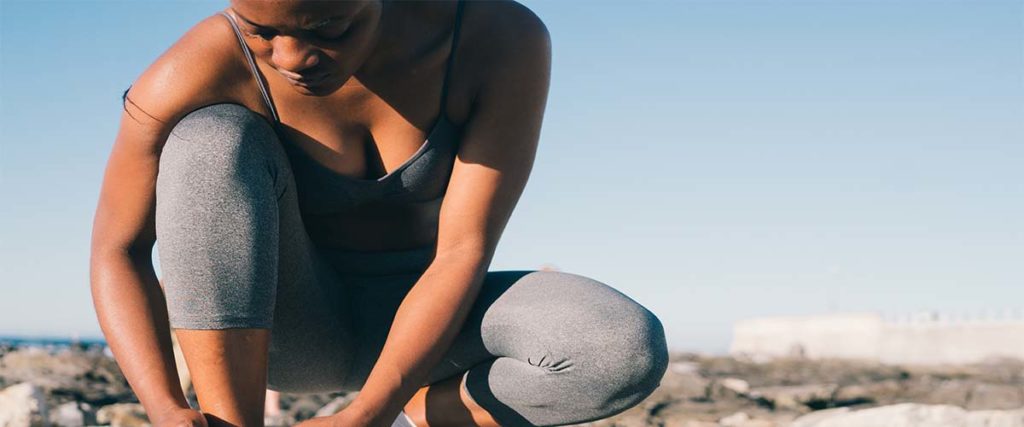
Running is one of the best forms of exercise for weight loss. Not only does it torch a ton of calories, but high-intensity forms of running, like interval running, can also help you burn fat for hours after you’ve stopped actively exercising.19 Running also burns excess belly fat (a trouble area for many of us) and may suppress your appetite by reducing your body’s production of hunger hormones and increasing the production of satiety hormones. This may lead to a decrease in the overall calories you consume.20,21
In one study, those who ran for more than a year had a significant reduction in body mass and body fat percentage compared to those who did not run.3
4. Boosted immune system
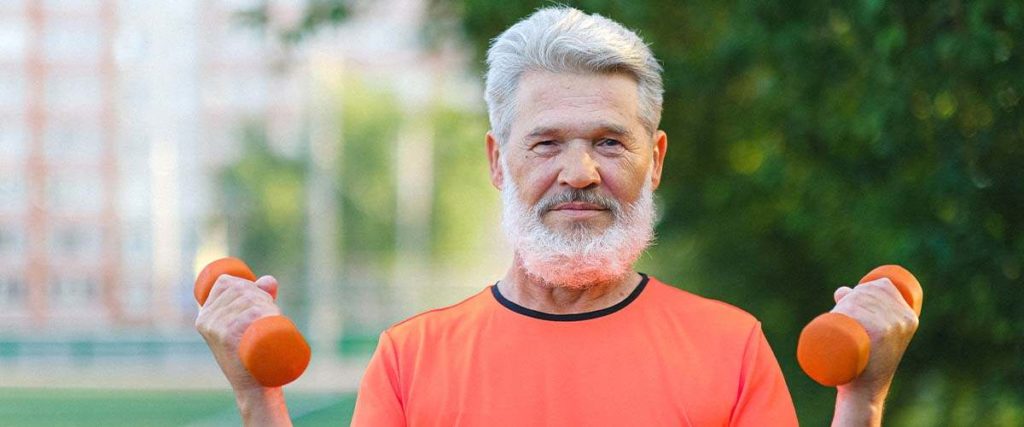
A benefit of running is it can even help boost your immune system! Scientists believe this happens because exercise can stimulate activity in the lymphoid and blood tissues. Over time, this effect can help your body monitor cells, decrease inflammation, and recognize foreign pathogens like viruses, bacteria, and precancerous or cancerous cells in the body.
Aside from more serious illnesses, exercise can also delay the onset of age-related dysfunction.6
5. Improved sleep quality

This is one of our favorite running benefits. According to Johns Hopkins, exercise like running helps you fall asleep faster and improves your overall sleep quality.7
Researchers have found that running boosts your body’s levels of serotonin, a hormone that helps regulate your sleep-wake cycle. As a result, your body might become better at regulating your sleep, which can alleviate issues like not being able to fall asleep at night or frequently waking up throughout the night.22
6. Relieves stress and improves mental health

If you constantly feel stressed, a benefit of running can lower your body’s levels of cortisol (a stress hormone), which may help you feel more relaxed. Years of scientific evidence back the hypothesis that running can reduce symptoms of mental health issues like depression, anxiety, mood swings, and low self-esteem.10
When you run, your body releases endocannabinoids, neurotransmitters that are naturally occurring in the body. After a run, these natural chemicals flood your bloodstream and head to your brain, producing feelings of relaxation and calmness.18 Although getting out for a run won’t fix all life’s problems, it may leave you feeling a little less anxious and balance your mood.
Adding running to your daily routine is a healthy and complementary way to support mental health and combat these issues.
7. Increased bone density
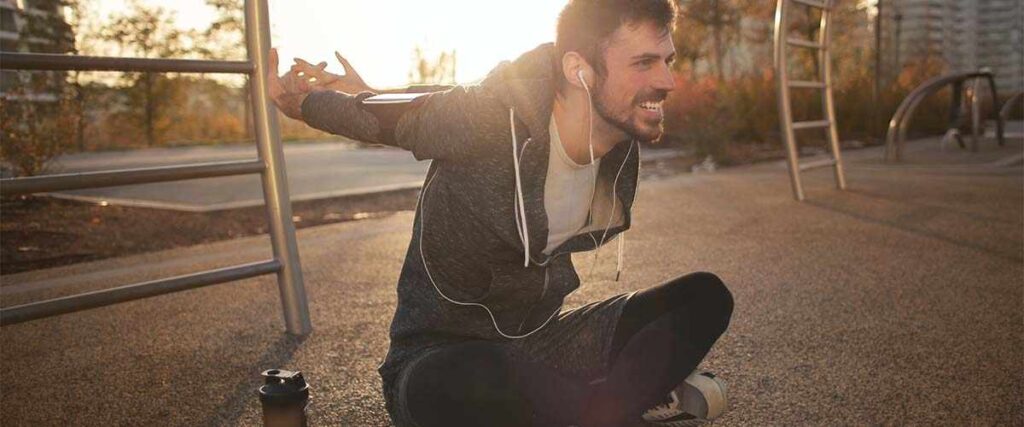
Bone is living tissue that changes over time in response to external forces, like your diet and physical activity. When you regularly participate in high-intensity exercises like running, your bones adapt by building more bone and increasing density.12 Having stronger, more dense bones means they’re less likely to fracture.
To reap this tremendous benefit of running, you’ll also need to make sure you’re eating a balanced diet, which comes full circle. The better you eat, the easier your runs will be because you’ll adequately fuel your body.
8. Reduced risk of cancer
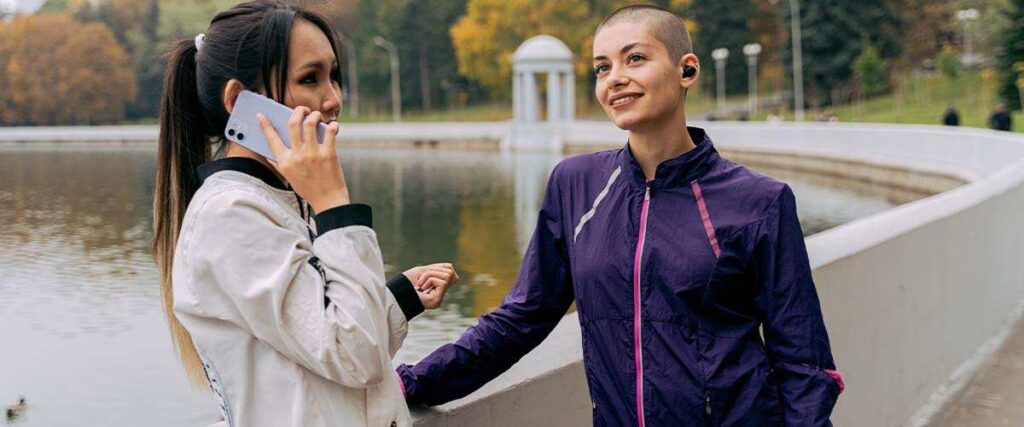
One 2016 study looked at the habits of 1.44 million adults and found that high-fitness exercisers, such as runners, had a lower risk of developing 26 different types of cancers than low and non-exercisers.13 Although the authors of the study took other lifestyle habits into account, such as not smoking, they concluded that exercise had very specific health benefits for preventing cancer.
For those who do develop cancer, researchers indicate that running can still help improve health. It reduces mortality rates and lowers the risk of cancer returning in a different form. It may also decrease the severity of the side effects of challenging cancer treatments like chemotherapy.14
9. Builds muscular strength
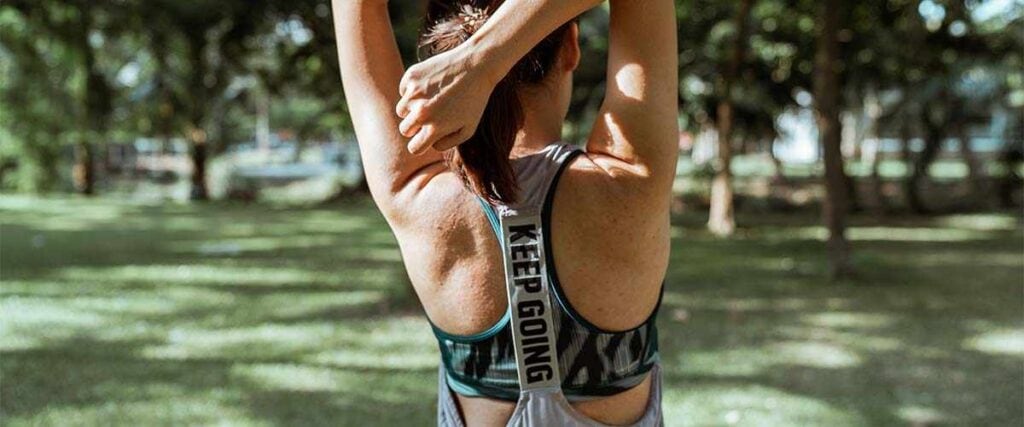
Running is often viewed as cardio, but it’s also a total body workout. As long as you fuel your body sufficiently, running will help you build stronger muscles and improve the strength of your legs, upper body, and core. However, the muscle-building running benefits of running largely depend on the intensity and duration of your runs.
One research study determined that after 10 weeks of HIIT workouts involving running as fast as possible for a set amount of time, 12 individuals gained an 11% increase in muscle fiber at the front of the thigh, compared with the control group.15 This suggests that sprinting, rather than long-distance running, is best for building muscles.
10. Boosts cognitive function

The discovery of cognitive benefits from running is pretty recent, but it’s just as exciting as all the other physical benefits! Running increases heart rate and blood flow, funneling more oxygen-rich blood to the brain. More oxygen and blood improve the brain’s health and performance. Additionally, a 2017 study from the European Journal of Neuroscience explores the possibility that running stimulates the release of a protein called brain-derived neurotrophic factor (BDNF), which improves the health of neurons in the brain.16
By improving your brain’s health, running can help protect you from cognitive decline and conditions like Alzheimer’s.
11. Lowers the risk of diabetes
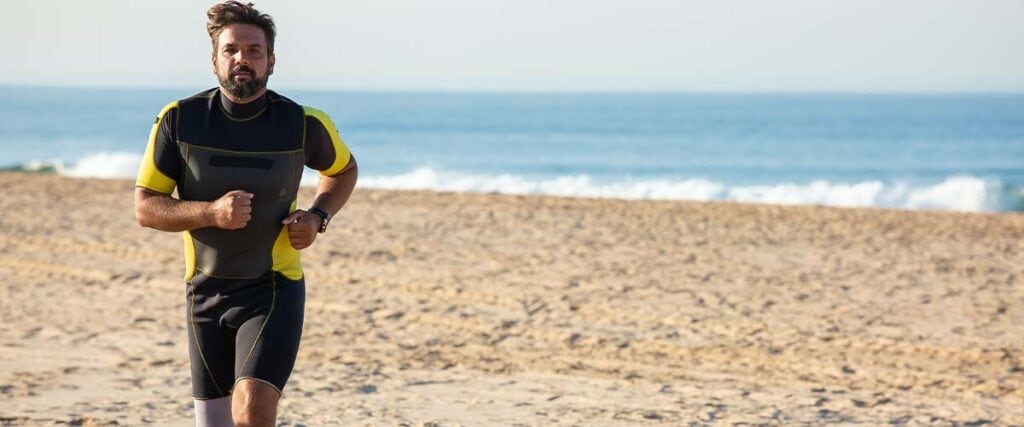
One of the significant side effects of being overweight is having high blood glucose levels, which typically leads to the onset of diabetes. High-intensity exercises like running can greatly reduce the risk of diabetes by improving glucose regulation and boosting your body’s sensitivity to insulin, combating insulin resistance.
One study compared more than 19,000 adults over six years and concluded that the runners were 72% less likely to develop Type 2 diabetes than the non-runners.17
12. Increased energy
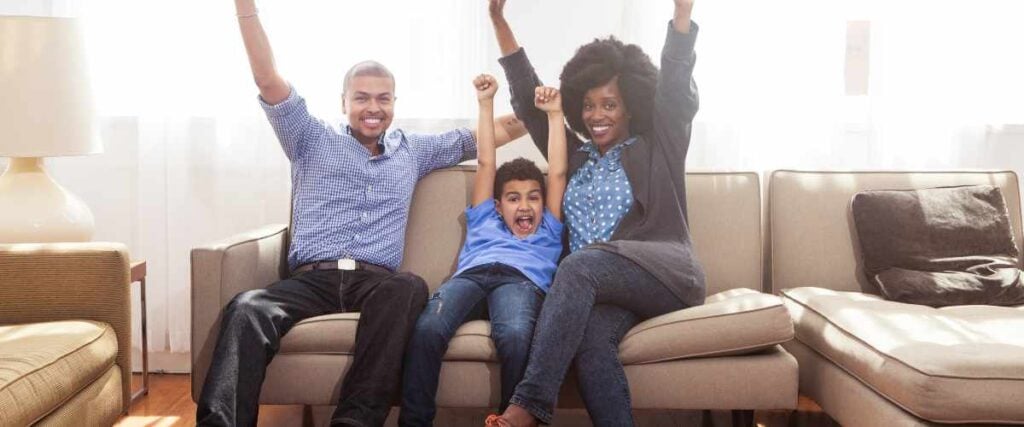
If you frequently feel tired, running might just help boost your energy. It might sound counter-productive, but moving and exerting yourself will encourage your body to produce more mitochondria inside your muscles’ cells, which take glucose and oxygen and turn it into more fuel for your body. Going for a run will also increase oxygen circulation inside your body, which supports mitochondria and helps your body use energy more efficiently, so you feel less tired.23
8 Reasons to Start Running
Running is an amazing way to make a meaningful difference in your life – no matter what stage you’re at in your fitness journey! If you’ve been contemplating running but need a little more convincing, here are 7 more compelling reasons to take the plunge.
1. Promotes a healthy lifestyle.
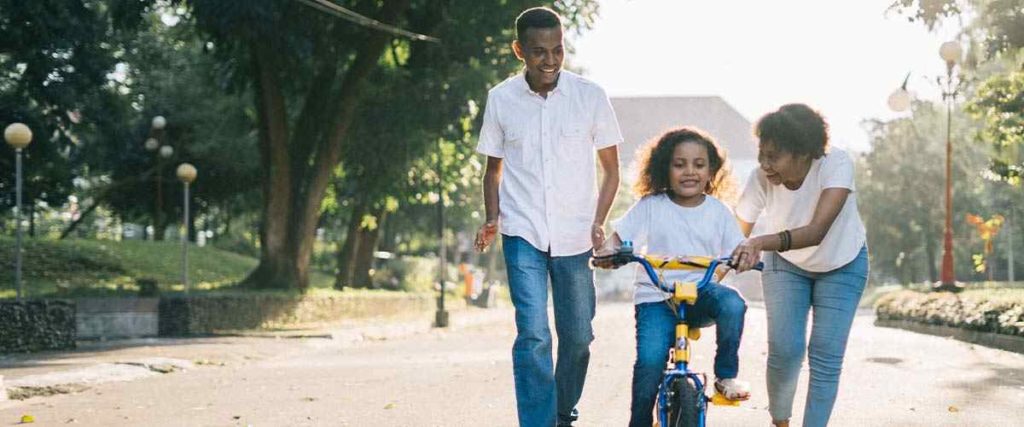
Running is the perfect motivational tool for leading a healthier lifestyle. When you dedicate time to caring for your body through running, it becomes easier to eat healthy, get more sleep, and drink water consistently. Additionally, running gives you a sense of accomplishment that inspires you to set higher standards in other areas of your life.
2. Gain confidence.

Setting goals and working to achieve them will boost your sense of self-efficacy and confidence. Even just the process of working hard to reach your goals will make you feel good, and there’s nothing quite like the high you get from achieving them. As your abilities grow, running will provide countless ways to challenge yourself and keep growing!
3. Exercise anywhere.

Making time to exercise can be extremely challenging, but it doesn’t have to keep you from achieving a fit and healthy lifestyle. Running is a convenient option if you’re struggling to find forms of exercise that fit into your busy schedule. You can run anywhere, whether you’re running indoors on a treadmill with Vingo or outside at a local park. All you need is a pair of comfortable running shoes to get started.
4. Make new friends.
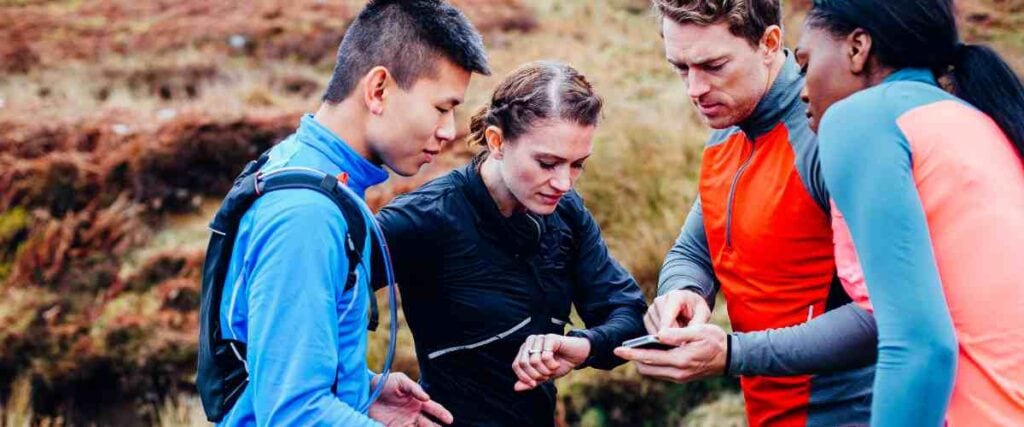
Although most forms of exercise can be solitary activities, running can also be very social. Running with a friend or joining a local running club is a great way to get connected and spend time with other like-minded individuals. If you’re new to running, you might also find that making it a social activity helps you stay motivated when you don’t feel like doing it. Running with other people is also an excellent way to stretch yourself and improve your physical abilities as you adjust to a new lifestyle that involves running. They’ll encourage you to do your best when you feel like you can’t.
5. Support a cause.
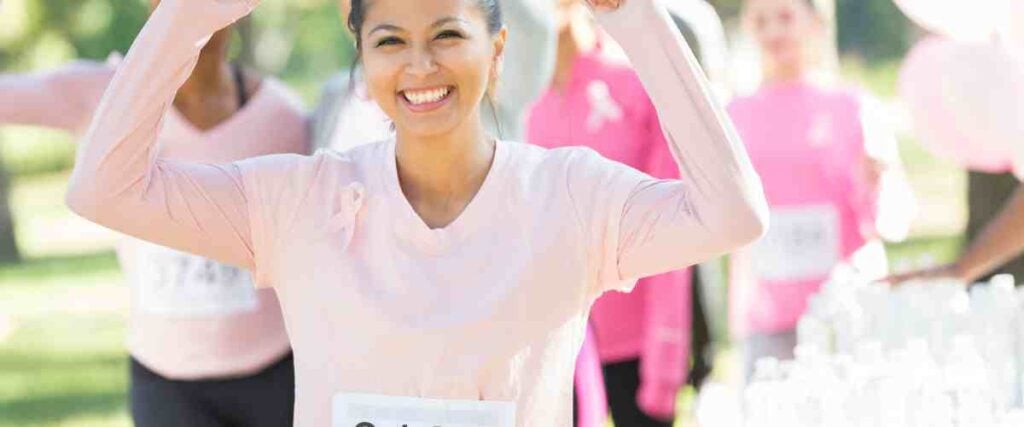
Maybe you’re passionate about a cause, like finding homes for stray animals or discovering a cure for breast cancer. Whatever it is, running can help! Many races worldwide are designed to raise funds for causes like medical research or service organizations that can help make a difference. If you’re looking for a way to work out, get fit, and also help support a cause you feel strongly about, running is a great way to do all three.
6. Spend time with family.
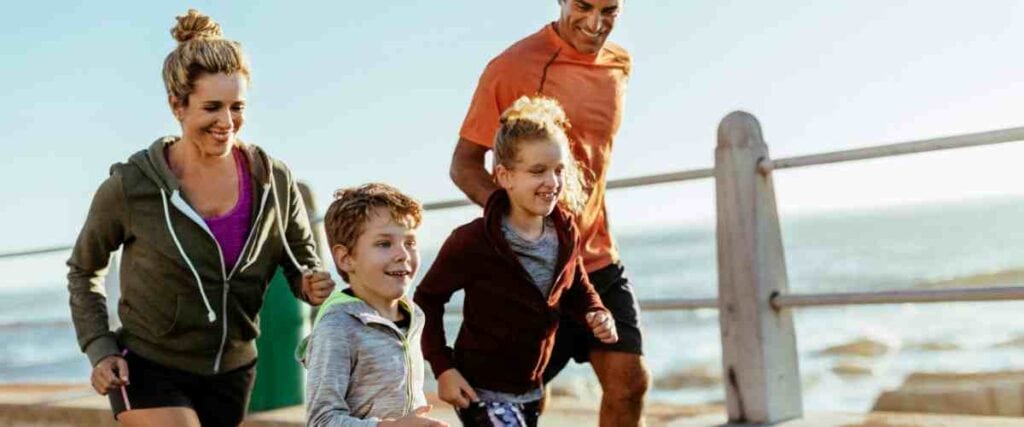
If you want a new way to spend time with your kids, siblings, or extended family, running might be the answer. Organize a group run where everyone can run at their own pace and enjoy the outdoors together. Whether you do it on vacation or schedule it into your weekly routine, family runs are a fun way to get active together and spend quality time with one another. Just remember that some family members may need to adjust their pace to compensate for others, especially those who are new to running.
7. Develop discipline.

Sticking with any new exercise routine requires a lot of motivation and discipline. By making it a priority to get out and conquer your runs each week, you’re taking steps in the right direction to improve your self-discipline and create healthier habits for yourself. And the best part? Discipline is a highly advantageous quality you can apply to all areas of your life!
8. Running can be fun!
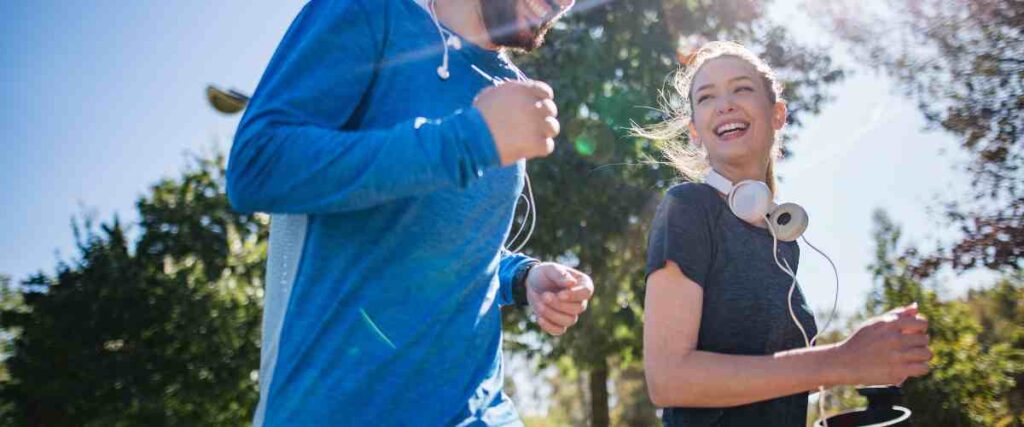
Believe it or not, once you get the hang of it, running can be fun! It doesn’t have to be a miserable experience you dread every time. Instead, apps like Vingo can make it an exciting and adventurous experience. With Vingo, you can run through scenic routes around the world while you move your body, explore new places, and build your endurance. If you’ve tried running in the past but struggled to get into it, try again with Vingo! You might find it more fun when you have a one-of-a-kind virtual adventure.
Don’t know where to start?
Check out Vingo! With Vingo, you can join from any indoor treadmill — hop on a trail and explore, and go for a quick run. We have options of all lengths and terrains so you can choose what’s best for you.
Key takeaways:
Running isn’t for everyone, but there are plenty of excellent reasons to give it a try. Whether you’re looking for a new way to get social or you want to lose weight, creating a structured running routine might be a positive way to achieve your goals and positively enhance your life.Sources
- Lee, D. C., Brellenthin, A. G., Thompson, P. D., Sui, X., Lee, I. M., & Lavie, C. J. (2017). Running as a key lifestyle medicine for longevity. Progress in cardiovascular diseases, 60(1), 45-55.
- Hespanhol Junior, L.C., Pillay, J.D., van Mechelen, W. et al. Meta-Analyses of the Effects of Habitual Running on Indices of Health in Physically Inactive Adults. Sports Med 45, 1455–1468 (2015). https://doi.org/10.1007/s40279-015-0359-y
- Williams P. T. (2013). Greater weight loss from running than walking during a 6.2-yr prospective follow-up. Medicine and science in sports and exercise, 45(4), 706–713. https://doi.org/10.1249/MSS.0b013e31827b0d0a
- Nieman, D. C., & Wentz, L. M. (2019). The compelling link between physical activity and the body’s defense system. Journal of sport and health science, 8(3), 201-217.
- Kalak, N., Gerber, M., Kirov, R., Mikoteit, T., Yordanova, J., Pühse, U., … & Brand, S. (2012). Daily morning running for 3 weeks improved sleep and psychological functioning in healthy adolescents compared with controls. Journal of Adolescent Health, 51(6), 615-622.
- Priebe, C. S., Beauchamp, M., Wunderlich, K., & Faulkner, G. (2020). “I’ma runner not a smoker”: Changes in identity as predictors of smoking cessation and physical activity. Psychology of Sport and Exercise, 49, 101702.
- Johns Hopkins Medicine. (2022). Exercising for Better Sleep. https://www.hopkinsmedicine.org/health/wellness-and-prevention/exercising-for-better-sleep
- Koplan JP, Powell KE, Sikes RK, Shirley RW, Campbell CC. An Epidemiologic Study of the Benefits and Risks of Running. JAMA.1982;248(23):3118–3121. doi:10.1001/jama.1982.03330230030026
- Sánchez-Pinillaa, R. O., & Aguilar-Blancob, E. M. (2006). Running and Its Influence On Smoking Habits. Primary Care, 37(9), 478–481. https://www.elsevier.es/es-revista-atencion-primaria-27-articulo-running-its-influence-on-smoking-13089610
- Markotić, V., Pokrajčić, V., Babić, M., Radančević, D., Grle, M., Miljko, M., Kosović, V., Jurić, I., & Karlović Vidaković, M. (2020). The Positive Effects of Running on Mental Health. Psychiatria Danubina, 32(Suppl 2), 233–235.
- Kvam, S., Kleppe, C. L., Nordhus, I. H., & Hovland, A. (2016). Exercise as a treatment for depression: A meta-analysis. Journal of Affective Disorders, 202, 67–86. https://doi.org/10.1016/j.jad.2016.03.063
- American Academy of Orthopaedic Surgeons. (2020, July). Exercise and Bone Health. OrthoInfo. https://orthoinfo.aaos.org/en/staying-healthy/exercise-and-bone-health/
- Moore, S. C., Lee, I. M., Weiderpass, E., Campbell, P. T., Sampson, J. N., Kitahara, C. M., Keadle, S. K., Arem, H., Berrington De Gonzalez, A., Hartge, P., Adami, H. O., Blair, C. K., Borch, K. B., Boyd, E., Check, D. P., Fournier, A., Freedman, N. D., Gunter, M., Johannson, M., . . . Patel, A. V. (2016). Association of Leisure-Time Physical Activity With Risk of 26 Types of Cancer in 1.44 Million Adults. JAMA Internal Medicine, 176(6), 816. https://doi.org/10.1001/jamainternmed.2016.1548
- Cormie, P., Zopf, E. M., Zhang, X., & Schmitz, K. H. (2017). The Impact of Exercise on Cancer Mortality, Recurrence, and Treatment-Related Adverse Effects. Epidemiologic Reviews, 39(1), 71–92. https://doi.org/10.1093/epirev/mxx007
- Estes, R. R., Malinowski, A., Piacentini, M., Thrush, D., Salley, E., Losey, C., & Hayes, E. (2017). The Effect of High Intensity Interval Run Training on Cross-sectional Area of the Vastus Lateralis in Untrained College Students. International journal of exercise science, 10(1), 137–145.
- Dinoff, A., Herrmann, N., Swardfager, W., & Lanctôt, K. L. (2017). The effect of acute exercise on blood concentrations of brain-derived neurotrophic factor in healthy adults: a meta-analysis. European Journal of Neuroscience, 46(1), 1635–1646. https://doi.org/10.1111/ejn.13603
- Wang, Y., Lee, D. C., Brellenthin, A. G., Eijsvogels, T. M., Sui, X., Church, T. S., Lavie, C. J., & Blair, S. N. (2019). Leisure-Time Running Reduces the Risk of Incident Type 2 Diabetes. The American Journal of Medicine, 132(10), 1225–1232. https://doi.org/10.1016/j.amjmed.2019.04.035
- Pietro, M. C. de. (2021, February 27). What to know about endocannabinoids and the endocannabinoid system. Retrieved October 23, 2022, from https://www.medicalnewstoday.com/articles/endocannabinoid
- Laforgia, J., Withers, R. T., & Gore, C. J. (2006, December). Effects of exercise intensity and duration on the excess post-exercise oxygen consumption. Journal of Sports Sciences, 24(12), 1247–1264. https://doi.org/10.1080/02640410600552064
- Vissers, D., Hens, W., Taeymans, J., Baeyens, J. P., Poortmans, J., & Van Gaal, L. (2013, February 8). The Effect of Exercise on Visceral Adipose Tissue in Overweight Adults: A Systematic Review and Meta-Analysis. PLoS ONE, 8(2), e56415. https://doi.org/10.1371/journal.pone.0056415
- Broom, D. R., Batterham, R. L., King, J. A., & Stensel, D. J. (2009, January). Influence of resistance and aerobic exercise on hunger, circulating levels of acylated ghrelin, and peptide YY in healthy males. American Journal of Physiology-Regulatory, Integrative and Comparative Physiology, 296(1), R29–R35. https://doi.org/10.1152/ajpregu.90706.2008
- Baron, K. G., & Reid, K. J. (2014, April). Circadian misalignment and health. International Review of Psychiatry, 26(2), 139–154. https://doi.org/10.3109/09540261.2014.911149
- Golen, T., MD. (2021, July 1). Does exercise really boost energy levels? Harvard Health. Retrieved October 23, 2022, from https://www.health.harvard.edu/exercise-and-fitness/does-exercise-really-boost-energy-levels
Photo Sources
Photo by Pixabay from Pexels
Photo by mentatdgt from Pexels
Photo by RF._.studio from Pexels
Photo by Anna Shvets from Pexels
Photo by Agung Pandit Wiguna from Pexels
Photo by Ketut Subiyanto from Pexels
Photo by Andrea Piacquadio from Pexels
Photo by ANTONI SHKRABA from Pexels
Photo by Kampus Production from Pexels
Photo by Savannah Dematteo from Pexels



